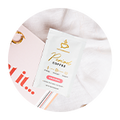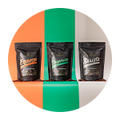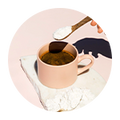Written by Judy Cho - Clinical Nutritionist
Most of us agree that the week of our menstrual period isn’t our favourite time of the month. With up to 89% of women of reproductive age reported to experience dysmenorrhea (painful periods) at least once in their life, chances are that you or someone close to you experience dysmenorrhea too (Navvabi Rigi et al., 2012). Fortunately, there are many natural and holistic methods to help treat this condition which affects so many women today.
Heat Therapy
Heat therapy is one of the most common methods women use to treat their dysmenorrhea and studies have shown it to be as effective as ibuprofen for reducing period pain (Navvabi Rigi et al., 2012). For those folks who struggle with going to the bathroom during that time of the month, heat application can also increase gut motility.
Exercise
I know what you’re thinking- the only exercise that sounds mildly desirable during that time of the month is a savasana pose on the floor. But research has shown that women who engage in physical activities regularly report fewer period-related, physical and emotional symptoms including menstrual cramps, irritability, and fatigue (Pearce et al., 2020). As most women report feeling fatigued during their period, lower-intensity exercises such as walking, yoga and pilates may be more beneficial than high-intensity workouts.
Antioxidant support
Antioxidants are natural compounds found in foods that fight inflammation. Studies have found that women with dysmenorrhea had significantly higher levels of inflammatory markers in their blood compared to the control group (Szmidt, Granda, Sicinska and Kaluza, 2020). A diet high in antioxidants has also been shown to reduce the risk for dysmenorrhea suggesting dietary intake of antioxidants has protective effects against period pain (Bajalan, Alimoradi and Moafi, 2019).
One functional ingredient renowned for its support during menstruation is goji berries. Goji berries are one of the most well-known ‘superfoods’ and contain antioxidants including vitamin C and zeaxanthin. In Traditional Chinese Medicine (TCM), they’re believed to tonify the blood and yin and are often added into teas to ease menstrual pain.
Iron Supplementation
Lastly, menstruating women lose blood each month during their menstrual period, and hence it’s no wonder that iron deficiency is one of the most common deficiencies affecting women worldwide. Iron deficiency symptoms include brain fog, fatigue, and dizziness. To help tackle this issue, look for gut-friendly iron chelate, a form of iron that has better bioavailability than other forms and is less likely to result in digestive side effects (most commonly being constipation).
Periods can be tough, and whilst we may have to give up wearing white jeans during that time of the month, we can still indulge in a delicious cup of coffee. Beforeyouspeak’s Period Coffee is going to be your new favourite beverage, regardless of what week it is!
References
Bajalan, Z., Alimoradi, Z. and Moafi, F., 2019. Nutrition as a Potential Factor of Primary Dysmenorrhea: A Systematic Review of Observational Studies. Gynecologic and Obstetric Investigation, 84(3), pp.209-224.
Navvabi Rigi, S., kermansaravi, F., Navidian, A., Safabakhsh, L., Safarzadeh, A., Khazaian, S., Shafie, S. and Salehian, T., 2012. Comparing the analgesic effect of heat patch containing iron chip and ibuprofen for primary dysmenorrhea: a randomized controlled trial. BMC Women's Health, 12, p.25.
Pearce, E., Jolly, K., Jones, L., Matthewman, G., Zanganeh, M. and Daley, A., 2020. Exercise for premenstrual syndrome: a systematic review and meta-analysis of randomised controlled trials. BJGP Open, 4(3), pp.1-11.
Szmidt, M., Granda, D., Sicinska, E. and Kaluza, J., 2020. Primary Dysmenorrhea in Relation to Oxidative Stress and Antioxidant Status: A Systematic Review of Case-Control Studies. Antioxidants, 9(10), p.994.










